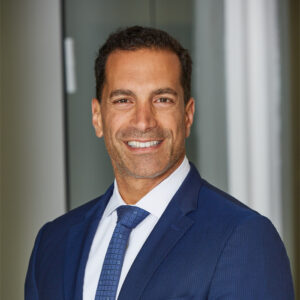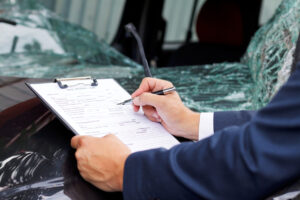
Property damage after a truck accident can be extensive and costly. In Florida, victims often face thousands of dollars in repair costs and replacement expenses. Accidents involving large vehicles frequently involve multiple vehicles and can destroy personal belongings beyond repair.
Here’s what you need to know about property damage in Florida.
Types of Property Damage

Large vehicle accidents cause different types of property damage than regular car crashes. The size and weight of commercial vehicles like trucks, buses, 18-wheelers, and semis create more destruction when collisions occur.
Vehicle Damage
Vehicle damage is usually the most expensive type of property loss:
- Total vehicle loss: Passenger cars often get completely destroyed when hit by large commercial vehicles
- Severe structural damage: The force of impact can crush frames and safety systems
- Multiple vehicle involvement: Chain reactions often damage several cars in one accident
Other property can be affected when large vehicles leave the roadway. Fences, buildings, and landscaping often suffer damage in severe accidents.
Other Personal Property Damage
Personal property inside vehicles also gets damaged or destroyed. Common items include:
- Electronics: Phones, laptops, and tablets that break during impact
- Clothing and accessories: Items that get damaged by broken glass or fluids
- Work equipment: Tools and professional materials destroyed in the crash
- Personal documents: Important papers that may be lost or damaged
Taking quick action after a large vehicle accident helps protect your property damage claim. Document everything while the scene is still fresh.
Immediate Steps After Property Damage
Follow these important steps immediately after an accident:
- Take comprehensive photos: Capture all damaged property from multiple angles, including wide shots and close-up details
- Create a complete inventory: Write down everything you can see that is damaged, even small items you might forget later
- Collect contact information: Get details from the commercial vehicle driver and insurance information from all parties
This information is crucial for filing successful property damage claims.
Filing Property Damage Claims
Property damage claims after large vehicle accidents involve multiple insurance companies. The process can be complex and time-consuming.
Contact the appropriate insurance companies:
- Your insurance company first: Report the accident immediately and provide all collected information
- The commercial vehicle’s insurance: Commercial policies often have higher coverage limits than regular auto insurance
- Other drivers’ insurance: If multiple vehicles were involved, each may have separate coverage
Keep detailed records of all communications with insurance companies. Document phone calls, emails, and letters to create a paper trail if disputes arise later.
Valuing Property Damage
Determining the value of property damage requires careful assessment. Insurance companies use different methods to calculate compensation amounts.
Common valuation methods include:
- Actual cash value: Considers the item’s age and condition before the accident, with depreciation reducing compensation for older items
- Replacement cost coverage: Pays for new items of similar quality, providing better compensation, but is not available for all property types
- Market comparison: For vehicles, insurers compare your car to similar models, considering mileage, condition, and features
Understanding these methods helps you evaluate settlement offers more effectively.
Common Property Damage Disputes
Insurance companies sometimes dispute property damage claims. Understanding common issues helps victims prepare better responses.
Common dispute types include:
- Total loss disputes: Insurance companies prefer repairs over replacements because they cost less
- Valuation disagreements: Companies may use lower estimates than actual replacement costs
- Coverage disputes: Determining which insurance company pays can take weeks or months when multiple policies apply
Preparing strong documentation helps counter these dispute tactics.
Rental Car and Transportation Costs
When your vehicle is being repaired or replaced, property damage claims may include reimbursement for reasonable transportation expenses. Insurance companies often cover rental car costs, but coverage is typically subject to certain limits.
Be sure to document all accident-related transportation expenses, including rental cars, public transit, and rideshare services. Always keep receipts to support your claim.
Most policies cap both the daily rental rate and the length of coverage. Reviewing your policy in advance helps you avoid unexpected out-of-pocket expenses if your costs exceed those limits.
Salvage and Total Loss Issues
When a vehicle is declared a total loss in a serious accident, salvage rights become an important part of the claims process. Understanding how these rights work can help you maximize the value of your settlement.
In most cases, once an insurance company pays a total loss claim, it takes ownership of the damaged vehicle and sells it to a salvage yard to offset costs. However, you may have the option to buy back your vehicle. This can make sense if it holds sentimental value or contains usable parts, though the buyback amount will be deducted from your settlement.
Many states also require a salvage title for vehicles with significant damage. These titles can impact future resale value, even if the vehicle is repaired. Knowing your options upfront ensures you make informed financial decisions after a loss.
Legal Options for Property Damage Claims
Sometimes insurance settlements don’t fully compensate for property damage losses. Legal action may be necessary to recover fair compensation.
Available legal options include:
- Small claims court: Resolves smaller property damage disputes quickly and inexpensively, though jurisdictional limits vary by state
- Civil lawsuits: Necessary for larger claims or insufficient insurance coverage, taking longer but potentially resulting in higher compensation
- Attorney representation: Valuable for complex claims, as legal professionals understand insurance tactics and negotiation strategies
Choosing the right option depends on your claim’s value and complexity.
Protecting Your Property Damage Rights
Several steps help protect your rights during the property damage claims process. Taking action early prevents problems later.
Essential protection steps include:
- Report to police: Get official documentation even if injuries seem minor, as police reports support property damage claims
- Review all documents carefully: Don’t sign releases or settlements without understanding their full impact on future claims
- Preserve documentation: Keep original receipts and records for all damaged property, with digital backups for protection
These steps create a strong foundation for your property damage claim.
A Personal Injury Lawyer Can Help
If you’ve suffered property damage in an 18-wheeler accident or truck accident in Florida, protecting your rights requires prompt action and proper documentation. The experienced team at Shaked Law Firm, P.A. understands the complexities of property damage claims and works to ensure clients receive fair compensation.
Contact our office today at 305-937-0191 to discuss your property damage claim and learn about your legal options.
